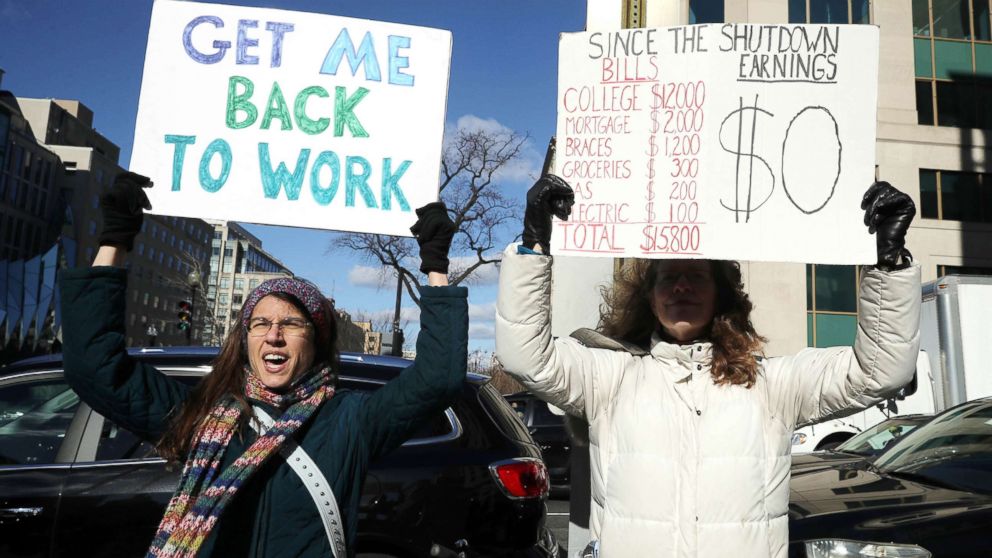Government shutdown: What happens to federal employees’ health insurance
This is a Kaiser Health News story.
As the partial government shutdown drags on, about 800,000 federal employees who work for the shuttered agencies — and their families — are facing the reality of life without a paycheck.
And those workers need to consider a host of other related issues as they attempt to make ends meet.
For starters, what will happen to their health insurance?
For the most part, federal employees needn’t worry about that, according to the Office of Personnel Management (OPM) in an FAQ blog post.
Both the online FAQ and the health insurance industry’s trade association confirm that coverage through the Federal Employees Health Benefits (FEHB) program will continue even if some federal agencies affected by the shutdown aren’t issuing those paychecks or paying premiums.
“The shutdown should not impact their coverage,” said Kristine Grow, spokeswoman for America’s Health Insurance plans, the trade group that represents insurers, including those that offer coverage through the federal program. “It’s business as usual.”
Once the shutdown ends and those payments resume, workers should expect that their usual share of premiums plus some of the accumulated amount that wasn’t deducted during the missed pay periods will be taken out.
“Procedures may vary somewhat by payroll office, but the maximum additional deduction allowed under regulations is one pay period’s worth of premiums (in addition to the current pay period’s premium),” said an OPM spokeswoman.
What about government contract workers
Less clear is what happens to workers under contract with the affected federal agencies — including some people working as analysts, administration assistants and janitorial staff — who are mostly excluded from the FEHB program.
Many companies that contract with the federal government offer workers insurance. The federal Office of Personnel Management recommends these contracted employees consult the human resources office at their company for answers regarding the shutdown.
“In 95 percent of cases, even if it’s not required by law, I would think most everyone would continue that coverage,” said Rachel Greszler, a senior policy analyst and research fellow at the Heritage Foundation who studies economics, budget and labor issues.
For contract workers who buy their own coverage and are struggling to pay bills without their paychecks, it’s a different story. One strategy may be to ask their insurers for a grace period in paying their premiums, similar to how the government has suggested workers seek accommodation from mortgage lenders and other creditors. But there is no requirement that insurers grant such a request.
“We are concerned about the disruption that this shutdown has caused our members and their families,” noted a corporate statement from CareFirst BlueCross BlueShield. “We are currently exploring how to best address this issue should the shut-down continue.”
What else could be affected?
Depending on how long the shutdown lasts, dental, vision and long-term care insurance programs may start sending bills directly to workers.
Federal workers pay the premiums for these benefits themselves, according to Dan Blair, who served as both acting director and deputy director of the OPM during the early 2000s. He is now a senior counselor and fellow the Bipartisan Policy Center.
Because workers’ checks are not being processed, the amounts usually sent to these carriers each pay period also aren’t being paid. If the shutdown lasts longer than two or three pay periods, workers will get premium bills directly from these firms and should pay them “on a timely basis to ensure continuation of coverage,” the OPM says in its FAQ. Blair agrees.
There also may be a delay in processing claims for flexible spending accounts. These are special accounts in which workers use pretax money deducted from their paychecks to cover certain eligible medical expenses, such as eyeglasses, braces, copayments for doctor visits or medications, including some over-the-counter products. With no paychecks going out, these deductions are not being made and transferred into FSAs. Once paychecks start up again, the amount deducted will be adjusted so the worker will get the annual total they had requested.
During the shutdown, though, reimbursement claims to these accounts also won’t be processed, the OPM says. Blair suggests holding off on big-ticket purchases during the shutdown, if possible, and always keeping paperwork on the purchases.
Another consideration: Those who changed plans before the furlough may find their paperwork wasn’t processed in time.
In those cases, the OPM says to stick with the old health plan until the shutdown ends and the new plan is processed. The new plan will pick up any claims incurred.
How will workers know if their change was processed? The OPM’s FAQ says workers who receive an ID card in the mail are enrolled.
“The new policy will be what applies and pays benefits, but there could be some administrative burdens and hassles on the part of workers if the shutdown continues much longer, if the initial bills are not going to the right insurance company,” Greszler said.
Overall, Blair says workers should continue to monitor news media sites, particularly those that focus on federal workers and issues, looking for any updates.
“We’re getting into uncharted territory and there are always things that pop up that no one has planned for,” said Blair, who did not face any shutdowns during his tenure at OPM.
Kaiser Health News is a nonprofit news service covering health issues. It is an editorially independent program of the Kaiser Family Foundation, which is not affiliated with Kaiser Permanente.
Editor’s note: This story has been updated to reflect that long-term care insurance programs may start sending bills directly to workers.




